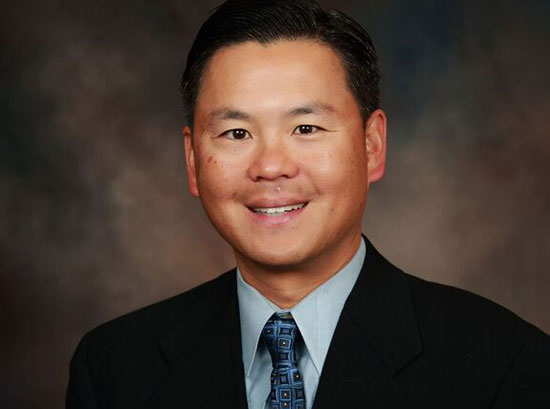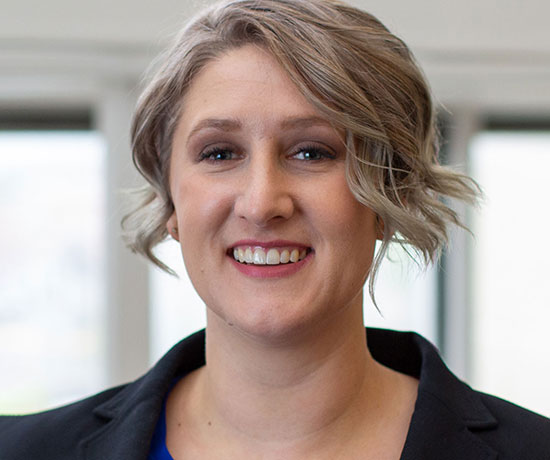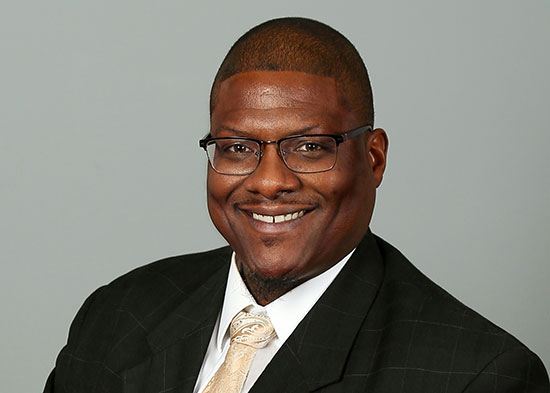
Assume the goal of every law firm is to maximize profitability. Profitability, in its simplest terms, equals total revenue minus total costs. Although simple enough to understand, the ability to increase profitability during a pandemic is affected by several factors, including a law firm’s location (rural versus urban), the number of employees, and the firm’s practice areas. And, unlike other for-profit businesses, most law firms typically disburse excess profits before the end of the year to avoid taxes associated with carryover revenue.
The author tested the assumption and interviewed lawyers at law firms of various sizes and diverse practices areas throughout the state. Profitability during a pandemic was not a priority of any firm. Instead, they focused on retaining staff, improving client relations, and maintaining positive cash flow. Maintaining or increasing law firm profitability will not be found in a single strategy. Rather, as explained in the following interviews, these firms employed multiple strategies to maintain profitability during a pandemic.
Diversifying Practice Areas and Offering Alternative Payment Plans
During this pandemic, many commentators have suggested expanding into recession-proof practice areas.1 Indeed, taking on a new practice area with high demand provides an opportunity for law firms to increase profitability, if the increased revenue outweighs the increased costs. “Firms contemplating expansion into financial insolvency practice areas must consider the demanding timelines, short deadlines, delayed payments, and associated carrying costs,” says J. David Krekeler, founding principal and shareholder with the firm of Krekeler Strother S.C., Madison.2
 Christopher C. Shattuck, Univ. of La Verne College of Law 2009, M.B.A. U.W.-Oshkosh 2015, is manager of Practice411™, the State Bar’s law practice assistance program. If you have questions about the business aspects of your practice, call (800) 957-4670 or visit practicehelp@wisbar.org.
Christopher C. Shattuck, Univ. of La Verne College of Law 2009, M.B.A. U.W.-Oshkosh 2015, is manager of Practice411™, the State Bar’s law practice assistance program. If you have questions about the business aspects of your practice, call (800) 957-4670 or visit practicehelp@wisbar.org.
“Bankruptcy filings, prior to this year, had decreased 32 quarters in a row ending with a small uptick in the fourth quarter of 2019. While we expect bankruptcy filings to increase this year, April saw a filing drop by nearly 50 percent, likely due to people sheltering at home during COVID-19. As businesses and people begin to return to work, it will still be some time before we see a substantial increase in the number of filings,” Krekeler says.
“For example, bankruptcy filings did not immediately increase in New Orleans following Hurricane Katrina. Rather, filings substantially increased one to three years after the hurricane made landfall, with the largest increase coming three years after the disaster. Unlike a hurricane, we do not know how long COVID-19 will last and when it will end,” Krekeler notes. He credits the delay in filings to the normal tendency of people not wanting to see someone about financial problems. “Often times, people and businesses burn through savings and credit, waiting to consult an attorney. If they would consult an attorney in the beginning of the process instead of at the end, more restructuring options would be available,” explains Krekeler.

Firms contemplating expansion into financial insolvency practice
areas must consider the demanding timelines, short deadlines,
delayed payments, and associated carrying costs.
– David Krekeler, Krekeler Strother S.C., Madison
Businesses already struggling were especially affected by the financial fallout related to COVID-19. Alternative payment arrangements or extended repayments are sought not only for creditors but also for legal representation. Law firms that do not offer payment plans or modified payment plans for their fees face the prospect of not getting paid at all and losing the client. Krekeler recommends that law firms embrace alternative payment arrangements, if they are able. He suggests responding to payment plan or modified payment plan requests with language such as the following:
“We will work with you and all of our clients to get through this COVID-19 crisis. Your proposal to pay X per month for now is acceptable to us. Many of our clients are having to adjust their payment plans with us. We will work with them and you to accept reduced payments for as long as we possibly can. So long as it does not put our firm out of business, we will work with all of our clients to get through this pandemic.”
Krekeler says, “Our firm’s philosophy has always been to help solve financial problems for small businesses and farms, to keep them alive and healthy. A number of years ago, it dawned on me that if I do the right thing for my clients and employees, my firm will ultimately experience profitability. I encourage firms to review their processes, financials, and work culture to find additional ways of increasing client and employee satisfaction, which will translate into increased revenue for the firm.”
Ask Us!
Questions about ethics or practice management? Need help with issues that affect your well-being and law practice? Confidential assistance is a call or click away.
Ethics Hotline: (800) 254-9154, or (608) 229-2017
9 a.m. to 4 p.m., Monday through Friday.
Practice411™: (800) 957-4670, or practicehelp@wisbar.org
WisLAP 24-hour Helpline: (800) 543-2625
Countering Negative Rhetoric and Accepting Electronic Payments
Every meeting with a potential client represents potential revenue for the firm. How do lawyers succeed in engaging clients who have a negative outlook on the process?
“In immigration law, you have potential clients [who] are facing deportation or who have been here for a few years and met someone they love and want to marry, who happens to be an American citizen. If the potential client, regardless of the situation, feels that the process is unfair and designed to rule against lawful requests, then they will not hire a lawyer. Therefore, it’s imperative that lawyers explain to potential clients that while there may be negative rhetoric, there is a process and rule of law that must be followed,” says Munjed A. Ahmad, founding partner of Ahmad & Guerard LLP, Milwaukee.3
Not all clients will be swayed into changing their perspective when they receive an explanation outlining the fairness of the process. Many clients will look to their referral source for validation of the lawyer’s promise on delivering a fair result. “We do not pay for any marketing of our firm. Instead, we receive word-of-mouth referrals from other clients and lawyers,” Ahmad explains. “Another significant source of our referrals stems from our community involvement. If a potential client hears from others that you’ve previously worked diligently to deliver on your promise of a fair process or [they] believe you to be a respected member or leader in your community, that can go a long way in helping change their negative outlook on the process.”

If a potential client hears from others that you’ve previously worked diligently to deliver on your promise of a fair process or [they] believe you to be a respected member or leader in your community, that can go a long way in helping change their negative outlook on the process.
– Munjed A. Ahmad, Ahmad & Guerard LLP, Milwaukee
Ensuring the client remains happy throughout the representation is of paramount importance, especially for those who initially had a negative perspective. In addition to offering payment plans, offering clients alternative payment options results in quicker payments and fewer disputes.
“We’ve always accepted alternative payment options, including utilizing a physical credit card terminal. However, with the impact of COVID-19 and the need to work remotely, we changed our credit card processing to allow for online payments,” Ahmad notes. “We’ve started sending electronic invoices to our clients with links providing the option to pay electronically. People are paying faster and there are less requests for discounts or reduction in fees.”
Lawyers seeking to accept electronic payments should review resources,4 attend continuing legal education seminars,5 and contact the Ethics Hotline6 for advice. “Prior to accepting credit card payments, we attended a seminar where Ethics Counsel Tim Pierce was a speaker. He outlined the rules on accepting electronic transactions and then we worked with LawPay7 to get our electronic payment process set up. After we understood the rules and processing requirements, it was very easy to begin accepting electronic payments. Attorneys seeking to increase revenue should definitely consider accepting electronic payments,” Ahmad concludes.
Generating Billable Hours and Developing Professional Centers of Influence
Offering alternative payment plans and accepting electronic payments can help boost law firm revenue. Another potential option is offering alternatives to hourly fees, such as contingent or flat fees.8 Alternative fee agreements might not be an option for firms that have built their practice around hourly work. For those firms, the focus will be on continually generating hourly revenue.
Evan Y. Lin, founding attorney and managing member of Lin Law LLC, Green Bay, says, “My law firm is a transactional/hourly fee practice, and we generate revenue almost exclusively based on our billable hours. Our time and advice is our inventory and stock in trade. Initially, COVID-19 caused our firm to postpone all in-person client meetings until we could safely meet again in person. Fortunately, at the initial outset of the pandemic, one of my clients suggested having a Zoom meeting in lieu of waiting until in-person meetings would be feasible. If you would have asked me four months ago what Zoom was, I would have told you it was a video game that my children played. Notwithstanding, once we became familiar with the Zoom technology and security safeguards,9 we started offering Zoom meetings as an alternative to all of our clients in lieu of in-person meetings.”10
“Law firms need to be flexible and recognize opportunities to continue working with clients in order to generate hourly revenue during this time. If law firms do not adopt technology into their practices to allow for meetings with clients to continue virtually, they face the prospect of losing the client or losing revenue. Both options are not sustainable in the long run, especially considering that client legal issues and needs will not disappear in light of the pandemic and still need to be addressed during these challenging times,” Lin adds.

If law firms do not adopt technology into their practices to allow for meetings with clients to continue virtually, they face the prospect of losing the client or losing revenue.
– Evan Y. Lin, Lin Law LLC, Green Bay
Law firms seeking to increase profitability from new client referral sources should review the total revenue and associated costs related to developing good referral sources and focus marketing efforts on areas in which increased profitability is realized. As a hypothetical example, consider a law firm investing $10,000 in a social media marketing campaign and $10,000 in radio advertising. If the law firm generates billable hours of $20,000 for each referral source, collects revenue of $18,000 from social media and $8,000 from radio advertising, then the investment in radio advertising, although generating more billable hours than marketing costs, actually results in decreased profitability for the firm.11
One profitable revenue source consistently recommended by transactional-based law firms is developing strong relationships with a number of professional centers of influence.12 “My practice’s client base is built almost entirely by word of mouth. After practicing law for over 22 years, I have been very fortunate to be able to develop and establish strong personal relationships with centers of influence and other professional advisors related to my practice areas in the community. I understand that the term ‘relationships’ may sound [like a] cliché, but it is truly how my law practice has been built. Client work generated from these types of referral sources generally result in almost 100 percent realization of my billable hours, resulting in my firm’s delinquent account receivables being almost nonexistent. I’d definitely recommend that other law firms emphasize expanding and strengthening their professional relationships with centers of influence related to their practice areas in order to attract new clients in the future. It’s worked well in the past for my firm and will continue to be the foundation of the success of my law practice in the future,” Lin concludes.
Building Staff Loyalty and Generational Clients
Typically, during times of high unemployment rates, the employee-attrition rate is low. Although the prospect of staff leaving for another firm or opportunity during these periods remains low, law firms should continue to view staff loyalty as a high priority.
“Our firm’s strategic priorities revolve around investing in and developing our employees. This is true for everyone in our firm, regardless of whether they are a partner or an associate, a full-time or part-time employee. When planning for the eventual revenue impact of COVID-19, we’ve committed to taking all other measures first before looking at reducing our staff,” say Sarah E. Fortune and Michael W. Gill, partners and management-team members at Hale, Skemp, Hanson, Skemp & Sleik, La Crosse.13

The mindset has been that we are not just attorneys, we are counselors at law. As a result, we’ve had the privilege of representing many clients’ families and businesses for multiple generations.
– Sarah Fortune, Hale, Skemp, Hanson, Skemp & Sleik, La Crosse
“We’ve been very fortunate in developing strong relationships with our clients and diversified revenue streams from our practice areas, so much of our short-term planning has been focused on increasing our staff efficiencies. When we transitioned to working remotely, we repurposed our daily reports process to provide staff with the opportunity to outline projects and work completed. If projects were taking longer than expected, we have the opportunity to reach out to provide additional resources. Similarly, if staff have additional capacity, we can shift those resources to assist practice areas operating above capacity,” Gill noted.
The relationship between a law firm and its clients is a critical component to measuring both the clients’ satisfaction and their willingness to refer other people to the law firm. “Our firm was established over 100 years ago and has continually focused on customer service. The mindset has been that we are not just attorneys, we are counselors at law. As a result, we’ve had the privilege of representing many clients’ families and businesses for multiple generations. We are very fortunate to benefit from that generational growth, and the way our employees treat our clients is a big part of that process,” concludes Fortune.

If projects were taking longer than expected, we have the opportunity to reach out to provide additional resources. Similarly, if staff have additional capacity, we can shift those resources to assist practice areas operating above capacity.
– Michael Gill, Hale, Skemp, Hanson, Skemp & Sleik, La Crosse
Reducing Costs and Accepting County Appointments
COVID-19 has caused many law firms to rethink their physical office footprints or renegotiate leases for rent relief.14 Lack of job opportunities or reduction in law firm staff will likely result in many lawyers considering the prospect of starting their own firms. Deciding whether to expend the upfront costs of a physical law office location should be considered in light of the firm’s other overhead costs and time it will take to realize the revenue from billing activities.
A solo practitioner must strive to keep the costs low for the law firm and its clients. “When I relocated to Eau Claire and opened my solo practice after working for the Eau Claire Public Defenders Office, I determined that I could keep my overhead costs low while still providing the same level of representation for my clients by operating without a physical office location,” says Aaron L. Abram. “I also strive to keep my costs low for my clients by reducing the number of in-person court proceedings and time spent driving to court proceedings.” Abram further recommends attorneys consider reducing other unnecessary costs and the time it takes to collect from various referrals before taking on new matters.

I strive to keep my costs low for my clients by reducing the number of in-person court proceedings and time spent
driving to court proceedings.
– Aaron L. Abram, solo practitioner, Eau Claire
“As a private attorney, I encourage firms looking for an additional revenue stream to consider county appointments, which provide consistent and timely revenue,” Abram explains. “To get started, the first thing you have to do is identify the presiding judge or [the] judge [who] typically handles county appointments. Next, you write a letter indicating the practice areas you would appreciate being considered for county appointments. The next step in the process varies by county, but the responsible official typically sends a letter to all of the judges involved with your practice areas to see if there are any particular judges that may have concerns with you being considered for county appointments. Once the responsible official determines that there are no objections to you being considered for county appointments, then you receive a response letter indicating whether you have been added to the county appointments’ list.”
“The work does not stop after you get added to the list of county appointments,” explains Abram. “You must continue to build positive relationships with everyone involved in the process. This includes the judge, judicial assistant, opposing counsel, and, most importantly, your assigned client. Without those relationships, the system does not work. Having those positive relationships and providing the best advocacy for your clients are critical to succeeding in a practice that counts on revenue from county appointments.”
Conclusion
The author appreciates the willingness and sincerity law firms demonstrated in responding to questions concerning the effects of COVID-19. Not all strategies will work for every firm, and firms may need to look at a variety of strategies, but the information provides some helpful suggestions for planning. If you need to talk with someone about your challenges during this difficult time, or any time, consider reaching out to WisLAP, the State Bar’s Wisconsin Lawyers Assistance Program, at (800) 543-2625. We are here to help.
Endnotes
1 See Steve Fretzin, How to Recession-Proof Your Law Practice, Nat’l L. Rev., March 30 2020; How to Build a Recession-Resistant Law Firm, LexisNexis, April 23 2020; Jared Correia, How to Create Revenue Opportunities During a Pandemic, MyCase.
2 Employing 27 people, including 10 attorneys.
3 Employing four people, including two attorneys.
4 See Timothy J. Pierce, E-banking: Modernizing Trust Account Rules, Wis. Law., July 2016; Options for Trust Account Management; Office of Lawyer Regulation’s Trust Account Page.
5 Lawyer Trust and Fiduciary Account Basics.
6 State Bar of Wisconsin Ethics Hotline, (800) 254-9154.
7 LawPay is a member benefit of the State Bar of Wisconsin.
8 For further explanation, see the Office of Lawyer Regulation’s publication, Legal Fees and Costs under the Supreme Court Rules.
9 See Aviva Meridian Kaiser, Videoconferencing and COVID-19: Zooming in on Our Ethical Obligations, InsideTrack, April 7, 2020.
10 Employing four people, including two attorneys.
11 Because total cost would exceed total revenue. Note that social media and radio advertising campaigns are hypotheticals only and not a suggestion that one campaign is superior to another or predicting results of marketing spend.
12 See Christopher C. Shattuck, What’s Hot, What’s Not: Wisconsin Practice Trends 2020, Wis. Law., Feb. 2020.
13 Employing 45 people, including 17 attorneys.
14 See Christine Simmons, Law Firm Leasing Activity Craters as Industry Rethinks Its Real Estate Footprint, Law.com, May 19, 2020.
